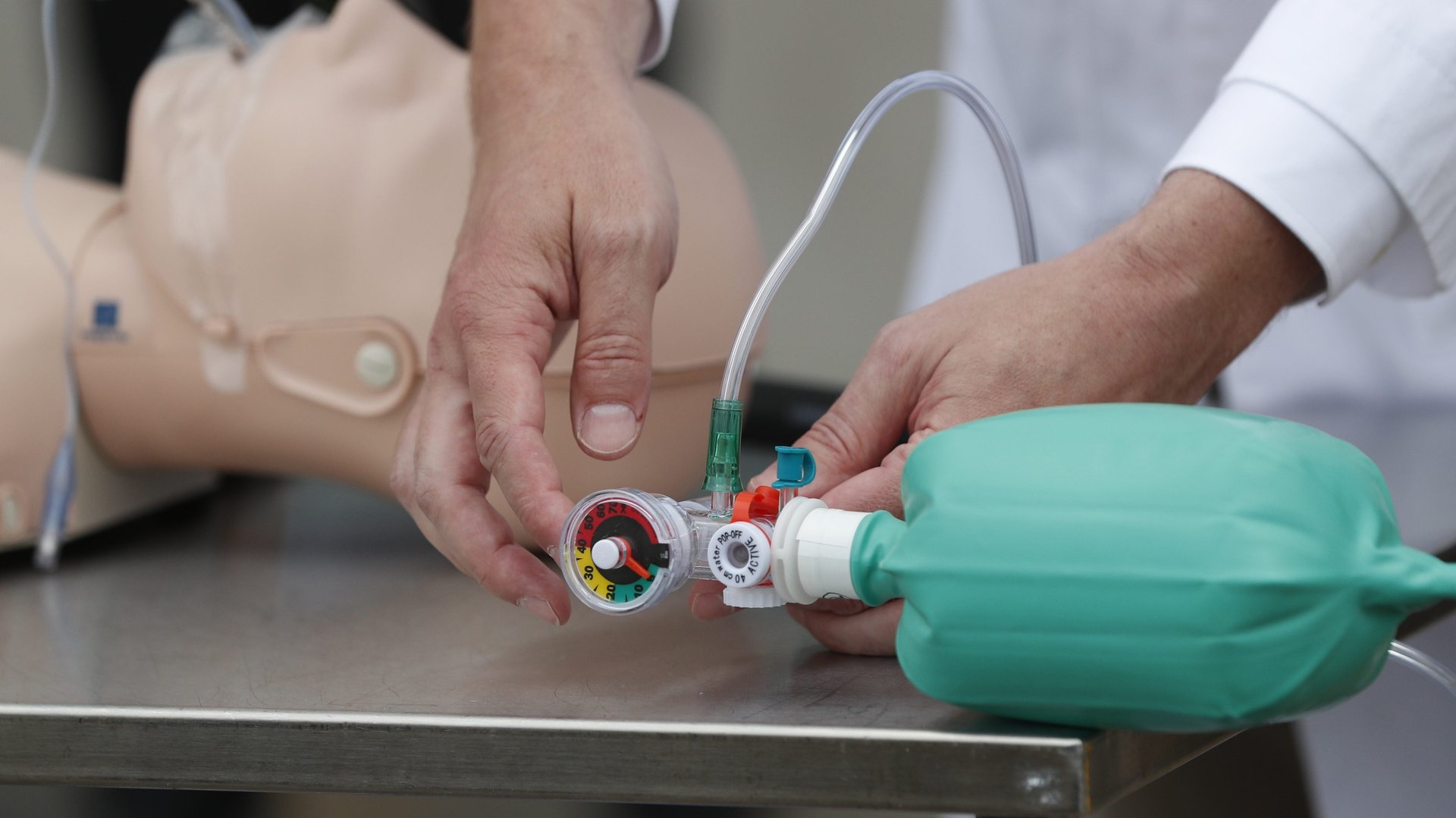Israeli engineers created an open-source hack for making Covid-19 ventilators
It took 10 days, more than 40 scientists, and the motor of a snowblower. The result may wind up being an inexpensive way to—in a pinch—save the lives of people suffering from Covid-19.


It took 10 days, more than 40 scientists, and the motor of a snowblower. The result may wind up being an inexpensive way to—in a pinch—save the lives of people suffering from Covid-19.
The respiratory illness can lead to severe cases of pneumonia, making it hard for those most affected to breathe without the assistance of a ventilator. But healthcare workers around the world don’t have enough ventilators for the number of people needing help. That’s given rise to a lot of creativity.
A team of scientists in Israel this week unveiled what they’re calling the AmboVent-1690-108, an inexpensive ventilator system made from a handful of off-the-shelf items. Project leader David Alkaher also heads the technology work of the Israeli Air Force’s confidential Unit 108, which is comprised of electronics specialists. Whereas a typical hospital ventilator costs around $40,000, the AmboVent system can be made for about $500 to $1,000.
The resulting machine looks rudimentary, but it’s designed to provide temporary relief for patients in difficult emergency situations.
The Israeli team made its project completely open-source through GitHub, an online software development platform. In doing so, they are letting anyone in the world access the device’s schematics, software coding, and instructions for how to piece it together. The group also gave permission for anyone to use it, even for profit, stating on GitHub:
“Anyone in the world [has] permission to use, copy, modify, and distribute this software and its documentation for educational, research, for profit, business and not-for-profit purposes, without fee and without a signed licensing agreement. All is hereby granted, provided that the intention of the user is to use this code and documentation to save human lives anywhere in the world.”
The scientists made 20 prototypes and sent them to a network of physicians around the world so that national regulators can begin inspecting the designs for potential fast-track approval.
To be sure, the team in Israel isn’t the only group that’s gotten creative with ventilator sourcing. The US company Medtronic recently made some elements of its well-established PB 560 portable ventilator hardware freely available.
More on the makeshift side, the French sporting goods company Decathalon has been selling scuba gear to the Rome-based Institute of Studies for the Integration of Systems, where it’s being enhanced with 3D-printed valve parts to make basic ventilator systems. The institute notes the devices are only for emergencies where it’s impossible to find official healthcare supplies.
Indeed, aside from Medtronic’s, none of these devices has gone through the usual channels that test their performance for safety or clinical use. And even professionally manufactured ventilators aren’t necessarily considered risk-free by many healthcare workers. In some cases, ventilators are believed to have contributed to the spread of the disease. Still, as tools the machines have proven important for keeping patients alive, and their availability is considered paramount.
In the case of the AmboVent, a trial of the machine on pigs will soon begin at the Hadassah Medical Center in Jerusalem.